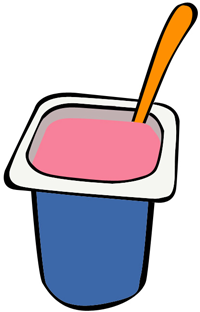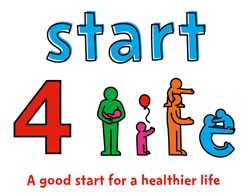Your Health Visitor will be able to discuss your child’s weight with you to determine if they are under or overweight. If you are worried your child is underweight and they have a poor appetite, discuss with your Health Visitor or Doctor. If they are overweight and it is not treated early on it could cause health problems such as raised blood pressure and cholesterol, type 2 diabetes, early puberty, asthma and other respiratory illnesses.
Being overweight is rarely to do with a medical problem, many kids simply have unhealthy diets and don’t do enough exercise. It is better to prevent your child becoming overweight (or obese) in the first place. A combination of good sleep patterns, a healthy varied diet and regular exercise will all keep your child to a healthy weight. It can be hard to recognise weight issues in our own children. It is important that parents spot the signs early on to prevent things getting worse and to promote healthy growth.
You are responsible for your child’s health and well-being, this includes what they eat. A healthy varied diet and exercise is the simple answer to many worries about being overweight. Try to have family outings which include walking and cycling so you can all get fitter together. Being active burns more energy and the body then starts to use up its fat stores.
Salt and Sugar is added to nearly all processed products. Three-quarters of the salt and sugar we eat is already in the food, the rest is what we add to cooking or shake on our meals. Children need less than 5g of salt a day (2g sodium).
 |
Juice drink
23g sugar
(5 teaspoons)
|
 |
Cereal bars
8g sugar
(1.5 teaspoons)
|
 |
Fromage frais
12.4g sugar
(2 teaspoons)
|
Children should be encouraged to eat a varied diet. They should eat foods from each of the four main food groups every day. The four main food groups are:
-
Bread, other cereals and potatoes.
-
Fruit and vegetables.
-
Milk and dairy foods.
-
Meat, fish and alternatives such as pulses (peas, beans and lentils), eggs, vegetable proteins and soya.
A varied diet is associated with better health as it is more likely to contain all the vitamins and minerals the body needs.

Many parents are unaware of the dangers of childhood obesity but by following the top tips below you can make a difference to your child’s health.
1. Sugar Swaps - Swapping sugary snacks and drinks for ones that are lower in sugar can make a huge difference.
2. Meal Time - It’s important for kids to have regular, proper meals as growing bodies respond better to routine.
3. Snack Check - Many snacks are full of the things that are bad for us - sugar, salt, fat and calories. So try and keep a careful eye on how many the kids are having.
4. Me Size Meals - It’s important to make sure kids get just the right amount for their age.
5. 5 A Day - 5 portions of fruit and/or vegetables a day.
6. Cut Back Fat - Too much fat is bad for us. It’s not always easy to tell where it’s lurking.
7. Up and About - Most of us spend too long sitting down. Keep active. Encourage your child to walk, you may need to use child safety reins.
Source: www.nhs.uk/start4life
DoH 2009 (www.dh.gov.uk/obesity).





